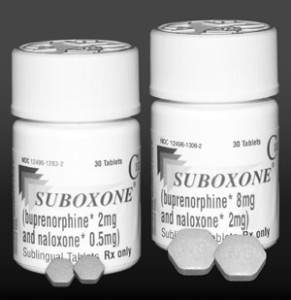What was once hailed as a miracle drug in the fight against opiate addiction is now a cause for concern. This is due to the high risks for dependency. Suboxone contains buprenorphine and naloxone. Physicians prescribe it to treat dependency to opiates like OxyContin, Vicodin, heroin, morphine and codeine. However, Suboxone addiction can become a problem in and of itself.
Suboxone Addiction Overview

Suboxone Rapid Drug Detox
The purpose of the drug is for people to switch from other opiates to Suboxone. However, it’s very possible to develop Suboxone addiction. Suboxone is one of the most prescribed drugs on the market. Demand continues to climb as more and more people fall into opiate addiction.
Many drug treatment centers base their programs on the administration of Suboxone to help patients replace other opiates. While it may be safe for a relatively short-term period, Suboxone can lead to dependency and is most often part of a long-term treatment approach.
Suboxone may be attractive to many people coming off opiates because it tends to dull emotional pain and alleviate depression and anxiety. But it doesn’t help patients to deal with the emotional or physical consequences of prolonged opiate use or abuse. It tends to be a shortsighted approach to a complex problem that responds best to multifaceted treatment.
For over 26 years, people from all over the world have chosen Waismann Method as their opioid detox provider.
We know the challenges you face and the importance of creating a unique and personal experience for you right from the start.Call for Detox Options 1-800-423-2482
Maintenance Therapy With Suboxone May Keep Patients In A Cycle Of Dependence
Many prescribing physicians don’t have training in the field of addiction medicine. Thus, they may over-prescribe Suboxone without realizing potential problems, like Suboxone addiction. Some programs use Suboxone on a short-term basis to help patients detox. Patients may then slowly wean off Suboxone. Other programs use it as “maintenance” therapy that can keep patients in a cycle of use.
This is a concerning treatment method because patients become trapped in a cycle of opiate addiction, which can become very difficult to break. Treatments that don’t typically rely on opiate “replacement” or “maintenance” therapies to help patients include Suboxone rapid detox. The Waismann Method ® is rated as the top rapid detox center in the country. We follow our detoxification with a specialized opiate aftercare program proven to bring quick, lasting results.
Waismann Method ® Rapid Drug Detoxification Center
Addiction Treatment
At the Waismann Method ® Rapid Drug Detoxification Center we use intravenous medications to reverse physical opiate dependency by removing the opiates at key receptor levels. This happens while patients are deeply sedated. The medical director accelerates the withdrawal process so patients don’t have to suffer when they awaken. Opiate withdrawal invokes downright terror for a lot of people, many of whom have a sincere desire to be opiate-free.
Suboxone withdrawal can bring about powerful symptoms including extreme anxiety, physical and psychological cravings, diarrhea, depression, low energy, high blood pressure, elevated heart rate, severe restless legs and weakness. Many people who attempt on their own to get off Suboxone are driven right back to it once withdrawal becomes too much to bear.
Suboxone can become a prison for people who stay on it for a long period of time. Opiate treatment that includes rapid detox for Suboxone can help patients stay off opiates for good. Aftercare or transitional care for a few days is imperative to ensure patients recover safely and become stronger physically and emotionally.





